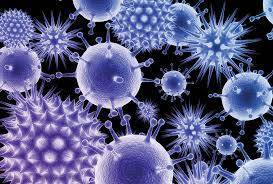We need tom improve our handling of Antimicrobial resistance

By Dr. Njenga Simon
The World Health Organization(WHO), reveals that Antimicrobial Resistance(AMR) occurs when bacteria, viruses, fungi and parasites change over time and no longer respond to medicines making infections harder to treat and aggravate the risks of disease spread, severe illness and death.
As a result of drug resistance, antibiotics and other antimicrobial medicines become ineffective and infections become increasingly challenging or impossible to treat.
The health sector across governments around the world have been challenged on their preparation and readiness to manage such a magnitude of an epidemic with the focus being the efficacy of the adopted therapeutic supply chains and competency of healthcare professionals.
With the later, monitoring, surveillance, testing and sampling, identification, response and review of preparedness systems has been pushed to the edge. While the available resources will always be insufficient against specific standards of expectation, emergency budgets and hiring of manpower has proved unreliable since knee-jerk response has always provided a short term relief.
The tools of science behind the discovery of new pathogens, diagnosis and therapy have always undergone rigorous refining with an aim to provide a competitive system which has little errors of margin and achieve higher values of sensitivity and specificity. Traditionally, it has always been minimally a joint effort across the stakeholders in human and animal health.
However, the 21st century has opened a new frontier where One Health is a collective approach in tackling infectious and non-infectious diseases. Statistical data from Centre for Disease Control (CDC) shows that about 75% of emerging diseases and 60% of known infectious diseases have origin from the non-human species and therefore puts the animal health sector under a special focus as the best approach to curtail pathogen transfer.
This is taking into account not just the normal parameters considered before and during treatment, but also taking into consideration other compounding factors that might have contributed to the infection with the environment indubitably being an element as a contributor to the disease in context.
One Health principle is therefore defined as a collective approach of tackling a disease or infection with taking into consideration to Animal Health, Human Health and the Environment.
The CDC refers it as collaborative, multi-sectoral and a transdisciplinary approach. This interlinkage therefore offers a strong case assessment for doctors while exploring their investigative sphere of evidence based medicine.
In Kenya, both specialties have a fair share of challenges especially on equipment, staffing and allocated resources for research and the private sector has come in handy to provide a more result driven system which has proven more sustainable.
This is despite the fact that the cost of this strategy has proven to be more expensive and the burden has been shifted to the consumer of the animal health services.
The historical challenges that have curtailed better tools of animal health delivery have unforgivingly come to haunt our wellbeing since food animals contribute to a sizeable percentage of our diet. Lack of consistent monitoring of antimicrobial residues in dairy products (milk, cheese and butter), eggs, meat among others which are refined for target markets have jeopardized the public by not clearly establishing the extent of the risks staring at their wellbeing.
In the past month, KENDAT/BROOKE E.A. have conducted a robust online Continuous Professional Development (CPD) workshop targeting all carders of animal health practitioners whose theme was “Veterinary service provision through enhanced animal and veterinarian welfare in a global one health perspective”.
It has greatly touched on principles of One Health and the daily clinical and research activities that in one way or another contribute to increase of infections across the human animal interactions.
At the center of this One Health topic is the AMR debate where discussions touching on the various methods used in disposing veterinary and medical waste by professionals have been an eye opener on the role they play in environmental contamination with in our ecosystems where communities live.
This public awareness would therefore be encouraged to be driven further to the general public in understanding not only the elementary interactions across the human, animals and environment but also the role they play in the wellbeing of each other in reference to ecology equilibrium.
Dr. Njenga Simon ,Project Veterinary Officer ,KENDAT – Heshimu Punda Programme








